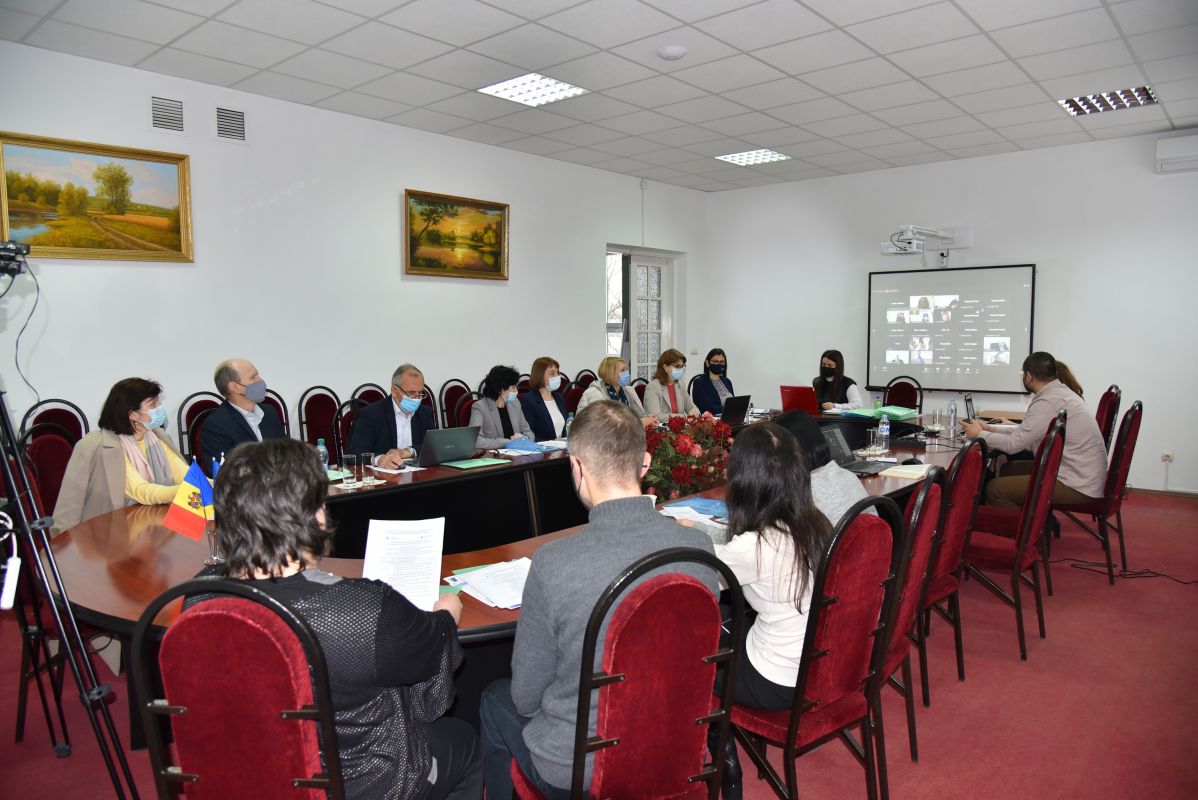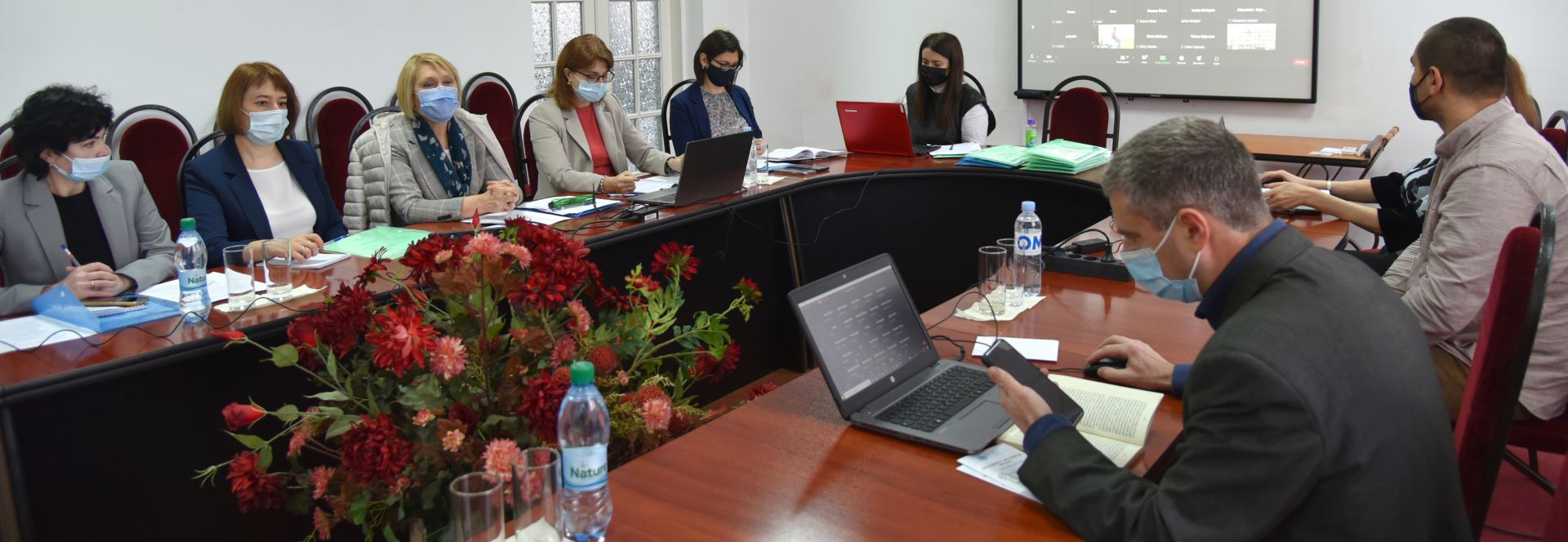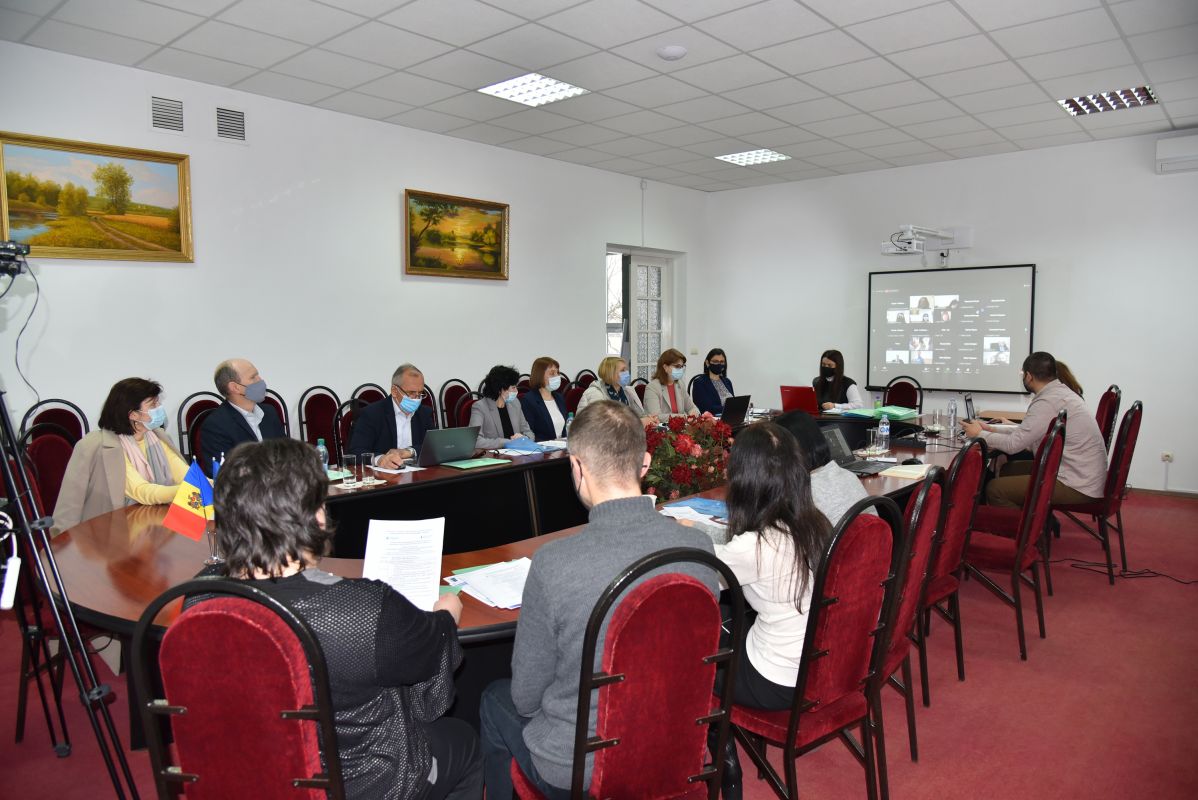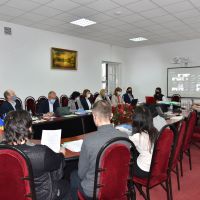Implementation of institutional policies on open science
- 1906 views

"Implementation of institutional policies on Open Science" was the generic of the workshop, organized in a mixed format by the Information Society Development Institute (ISDI) in partnership with Nicolae Testemitanu State University of Medicine and Pharmacy, on December 16, 2021 The event was organized under the Project Stimulating the commitment of the Republic of Moldova in Open Science: methodological and applied support, which aims to study the current situation as regards Open Science (OS) in the Republic of Moldova in terms of international and national initiatives, international good practices and to come up with certain recommendations for local decision-makers and institutions in the field of research and development.
"We are witnessing the transformation of the research-development and innovation sector. Science must apply new mechanisms and tools for communication, implementation and dissemination of scientific results, as well as for other stages of the research process ", said the moderator of the event, Doctor Habilitated Nelly Țurcan, ISDI project director, university professor at the State University of Moldova.
According to the expert, the project team aims to contribute to the elimination of differences between disciplines and institutions, between different actors and organizations on the concept of Open Science, as well as to provide methodological and applied support in the implementation of institutional and national policies on OS. "Taking into account the intense international concerns for the development of Open Science, as well as the national and international visibility of ISDI, we have all opportunities to further develop and deepen the planned activities in international collaborations with impact on Moldova's integration into the European Research Space", stated Prof. Nelly Țurcan.
"By applying the principles of Open Science, disseminating the results of scientific research, we will improve the University's position in international rankings and increase its academic prestige," said Elena Raevschi, Doctor Habilitated in medical sciences, head of the Research Department of Nicolae Testemitanu University. Thus, the adoption of the principles of Open Science by Nicolae Testemitanu University has paid off, in the last 12 years there has been significant progress in research. In April this year, the University Scientific Council approved research performance criteria based on international rating rankings. Nicolae Testemitanu University from the Republic of Moldova climbed 556 positions in the ranking of institutional repositories present online globally and remains in second place nationally. According to the report made public by the Web Ranking of Repositories (Webometrics https://repositories.webometrics.info/en/institutional) in May 2021, our institution ranks 498th and has 8,750 entries indexed in Google Scholar. There is also an increase in the number of articles published annually, as well as an increase in the number of citations in the Scopus database of University researchers' publications. Moreover, there is a significant leap forward in the Hirsch index. "We hope that Nicolae Testemitanu University’s researchers will continue to show ambition and perseverance in order to contribute to the advancement of research," added Elena Raevschi.
In his turn, Igor Cojocaru, ISDI director, has specified that the initiative transposed in the IT tool 10 years ago led to the fact that currently more than 141 thousand publications are available in the National Bibliometric Instrument, plus tens of thousands of other publications in institutional repositories that register more than 56 thousand accesses every day. "Every day, this open access database has more visitors than the entire number of research units of the Republic of Moldova, which demonstrates an increased interest. Or, if we talk about the export of knowledge, this content represents a value", said Igor Cojocaru.
According to the expert, the principle of Open Science allows the identification of certain problems, one of them being plagiarism. An important pillar of Open Science is the integrity of research and the researcher. Another significant element is the mapping of research infrastructure to build that pillar of shared infrastructure. Another initiative relates to research data, when the involvement of several parties is needed in order to have an impact at the country level. At the same time, the COVID-19 pandemic has shown that we need research in all areas, today the crisis is in the field of medicine, and tomorrow it could be in the field of cybernetics. The Director of ISDI believes that in order to prevent certain long-term consequences, the involvement of all specialists in the field of information technology, the library network and researchers is needed: "We must join forces so that the results of Open Science are not based on a single pillar - Open Access - a top-down policy is needed, i.e. the involvement of authorities, decision-makers, to develop policy documents at the country level and to support projects funded by the State Program" .
Iulia Vacarenco, Senior Consultant, Research and Innovation Policy Directorate at the Ministry of Education and Research (MER), believes that although Moldova is at the beginning of the road, the country aligns with international practice on the implementation of Open Science and considers this principle an essential condition for responsible research and open innovation. "The adoption of Open Science practices requires that all parties involved in this process be aware of the benefits of OS for the further development of national research and innovation, and the MER will ensure that the established rules are sufficient and appropriate to promote, adopt and implement the principles of Open Science by research organizations, while planning the necessary financial resources. The benefits of the Open Science policy, indisputably, offer the opportunity to increase the synergies between research, development and innovation through which we can make the most of our national research and innovation potential ", concluded the MER representative.
Dr. Natalia Cheradi, Director of the Scientific Library, Academy of Economic Studies of Moldova, analyzed the 15 Open Access institutional policies in the Republic of Moldova according to: archiving versions of works, content, promotion, copyright and licensing, data access policy, embargo and support for standards. In this context, recommendations have been made on updating and linking OA institutional policies to international best practices, including excluding or reducing the embargo period for open access publications, as well as clarifying the types of Creative Commons license, information on retention period, withdrawal of documents, eligibility of authors, etc. At the same time, in order to increase institutional visibility, the rapporteur recommends open access to research data, research evaluation, training, promotion of Open Access and Open Science, immediate open access publication and interconnection of data from institutional repositories with ORCID and in aggregators such as OpenAIRE. It is also necessary to specify the peer review procedure and review the links that are not active in ROARMap. Finally, she proposed a model Open Access Institutional Policy.
At the end of the event, Rodica Cujba, head of the Scientific Investigations Department of the Technical University of Moldova, made a detailed analysis of the national survey Attitudes Towards Open Science, the purpose of which was to determine the degree of awareness as regards the role of Open Science policies among research process actors in the Republic of Moldova.
The workshop was attended by 84 people, including representatives of universities, research institutions, ministries, libraries and archives of the Republic of Moldova and Romania.
Preluarea informației de pe site-ul USMF „Nicolae Testemițanu” poate fi efectuată doar cu indicarea obligatorie a sursei și a linkului direct accesat pe www.usmf.md.




Comentarii